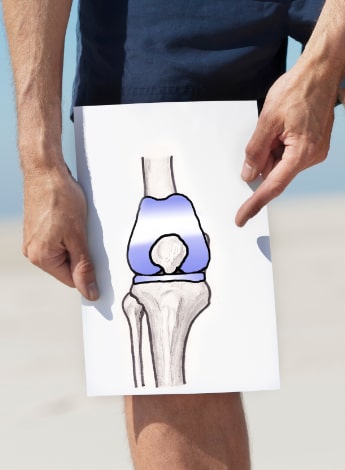Improving clinical practice with accurate adherence reporting measures
2020 PRF Seeding Grant recipient Vicky Duong talks about about her research project.
After graduating from the Doctor of Physiotherapy program at Macquarie University in 2015, Vicky Duong set her sights on pursuing her main area of interest—hands.
But an unexpected opportunity to work on a large randomised clinical trial on treatments for hand osteoarthritis (OA) exposed her to the world of research.
She waved goodbye to her original career pathway of a clinical career in hand physiotherapy and ventured further into research—in particular, OA.
There is currently no cure for OA. Each year, tens of thousands of Australians undergo total knee replacement (TKR) surgery, with post-surgical management focusing primarily on exercise and physical activity (PA).

In 2020, Vicky was awarded a Physiotherapy Research Foundation (PRF) Seeding Grant for $8000, enabling her to conduct her first project as the lead researcher: ‘Adherence to exercise and physical activity following total knee replacement’.
Vicky says the study is the first of its kind to focus on adherence to exercise and PA for post- TKR patients, rather than effectiveness.
‘Exercise and PA are important components of a postoperative rehabilitation program and patients’ adherence to exercise, and PA dictates their success and what outcomes they have.
'Adherence is especially important because a lot of the management is based on behavioural changes, which are always difficult to modify.’
Vicky’s research is part of a larger randomised controlled trial for TKR and spinal surgery titled: ‘Participatory health through behavioural engagement and disruptive digital technology for postoperative rehabilitation: protocol of the PATHway trial’, which is funded by the Ramsay Research Foundation.
Vicky is heavily involved in this project, which is looking at the effectiveness of digital interventions and whether they can be incorporated into rehabilitation programs to improve pain and functional outcomes as well as cost-effectiveness.
Vicky’s own trial is distinct from the PATHway trial.
Using a subset of 102 of the TKR participants, she aims to investigate adherence to PA and exercise specifically following TKR.
The Seeding Grant will cover costs including patient recruitment, travel between sites, and accessing a biostatistician to help analyse the results.
If her plate wasn’t already full, Vicky commenced her PhD in 2019 (going fulltime in March 2020) where her focus is primarily on the adherence of the trial.
The main aim of her research is to see how accurately participants self-report their adherence to PA and exercise programs by comparing self-reported data to objective data.
Objective data, which includes data from digital devices such as wearables or mobile apps, will provide a more accurate picture of the participants’ activity.
‘People tend to over-report their exercises and also there is a bias when they come in and want to please their physio, so they may not be accurate with their reporting,’ Vicky says.
The trial will examine the predictors of adherence and non-adherence, in particular, what factors can be identified that make participants more likely or less likely to adhere to exercise and PA after TKR, as well as how that adherence affects pain and functional outcomes.
‘In patients with knee OA, adherence tends to decline over time. It’s also been shown that the more adherent people are to their exercise the less pain they have,’ Vicky says.
‘Hopefully our results will provide data of validity for self-reported adherence compared to the digital technology, which will also improve the understanding of potential factors that could predict adherence following TKR.
'We also want to know whether higher adherence is associated with improved long-term pain after TKR.’
Vicky believes the outcomes—particularly the use of digital technologies—could potentially be applied to other musculoskeletal conditions.
Following the COVID pandemic, the use of digital and disruptive technologies has continued to surge.
‘In the time of COVID restrictions and lockdowns, we saw an increase in mobile health and technology, which might be a cost-effective solution or addition to standard physio care.’
Vicky says that the results will provide important information regarding adherence to PA and exercise and optimising this will lead to improved patient outcomes following TKR.
‘For example, we may be able to better identify patients who might struggle to adhere to their home program so they can be targeted with things like behavioural change techniques that we know have been shown to help adherence.
'Currently there’s no valid measure for measuring exercise adherence and sometimes in studies it’s not even done.
'Understanding more about the accuracy of adherence reporting measures will also allow us to collect better measures that we use in clinical trials and in clinical practice.’
Vicky Duong graduated from the Doctor of Physiotherapy program from Macquarie University in 2015 and has primarily worked in the field of orthopaedic, musculoskeletal physiotherapy and clinical trials. She is currently undertaking her PhD at the University of Sydney. Vicky’s research investigates adherence to conservative treatments in osteoarthritis patients. Vicky is supported by a University of Sydney Postgraduate Award scholarship.
© Copyright 2025 by Australian Physiotherapy Association. All rights reserved.





